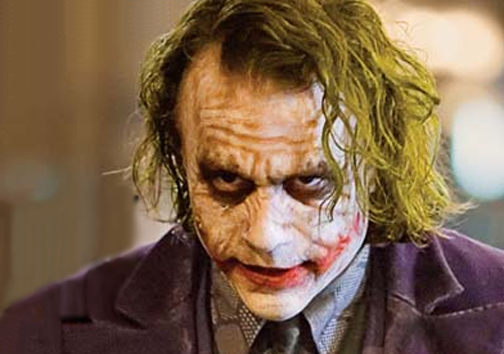This continues my experiment with predicting this year’s Oscars entirely without logical thought of reference to rumors and odds, but entirely on the basis of my emotions, with reference to the newly-named human emotion of Elevation.
My usual logical and, of course, profound official predictions will appear with the annual Outguess Ebert contest on Feb. 8. These early judgments are entirely subjective and inarguable. They won’t even include discussions of the other four nominees. They will not necessarily be reflected in my Feb. 8 selections.
I expect the late Heath Ledger to win the Oscar for best supporting actor for “The Dark Knight,” but I’m not choosing his performance as the “most elevating” out of sympathy. It was elevating for an entirely separate reason: He transformed the character of the Joker, who we thought we knew so well, into a suffering, haunted being, stripped of all emotion except for ruthless self-pity.
Exactly what wounded the Joker is hard to say (he tells conflicting stories, neither one necessarily true), but something certainly did. His role as the Joker is not performed to entertain himself, but as a necessary acting-out of turmoil. Its function as a deliberate performance is underlined by his makeup, deliberately cruder and messier than previous Jokers, as if he slops it on with anger. His laugh is maniacal.
These feelings are a tribute to Ledger, to director Chris Nolan, and to the screenplay by Nolan and his brother, Jonathan. This Batman film, while still an over-the-top comic book extravaganza, is curiously more human than before, giving greater weight to the characters as if they actually were, however impossibly, human beings.
To this general tone, Ledger (and the writers) add an element to the Joker’s tricks that is new: His diabolical schemes are designed as moral tests, deliberately constructed ethical choices designed to demonstrate the validity of his twisted view. I am aware that the theory behind the “emotion of Elevation” suggests it involves people being good or uplifting. The Joker certainly doesn’t qualify.
But curiously, I found I pitied him, was moved by his cry for help. And yes, perhaps I was moved, after all, by the knowledge that this would be Heath Ledger’s last performance. You can’t watch the movie without thinking that. And it is so brave, so exhausting, so giving of self, so willing to give voice to the Joker’s pain, that it reached me deeply.












